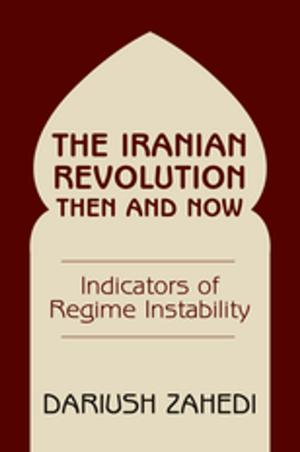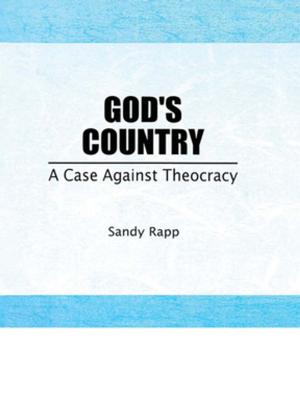Developments in Israeli Public Administration
Nonfiction, Social & Cultural Studies, Political Science, Government, Public Policy, Social Science| Author: | ISBN: | 9781135316891 | |
| Publisher: | Taylor and Francis | Publication: | February 25, 2014 |
| Imprint: | Routledge | Language: | English |
| Author: | |
| ISBN: | 9781135316891 |
| Publisher: | Taylor and Francis |
| Publication: | February 25, 2014 |
| Imprint: | Routledge |
| Language: | English |
The "Israeli History, Politics and Society" series comprises multidisciplinary studies that range from elections and the Yom Kippur war to the search for a true Israeli identity and the various initiatives to foment or prevent the peace process. This volume brings together a set of articles that try to estimate the direction of developments in Israeli public administration: whether ministries will remain under the ambit of the Weberian model, follow the New Public Management model, or move towards a mix of the two. Each essay focuses on a specific factor which may inhibit reforms, such as the weakness of mechanisms for policy control, monitoring and evaluation; lack of co-ordination between the different ministries; lack of effective accountability mechanisms; an administrative culture that is characterized by frequent infringements of moral integrity; a high level of politicization; and a Supreme Court which plays a paramount role by routinely intervening in the practices of public administration as well as in the business of other governmental and non-governmental institutions. Each article probes how these distinctive features of Israeli public administration reflect underlying traits of the nation's history, culture and geography, and gauges the extent to which formal structures provide an indication of how policy-making and programme implementation really operate.
The "Israeli History, Politics and Society" series comprises multidisciplinary studies that range from elections and the Yom Kippur war to the search for a true Israeli identity and the various initiatives to foment or prevent the peace process. This volume brings together a set of articles that try to estimate the direction of developments in Israeli public administration: whether ministries will remain under the ambit of the Weberian model, follow the New Public Management model, or move towards a mix of the two. Each essay focuses on a specific factor which may inhibit reforms, such as the weakness of mechanisms for policy control, monitoring and evaluation; lack of co-ordination between the different ministries; lack of effective accountability mechanisms; an administrative culture that is characterized by frequent infringements of moral integrity; a high level of politicization; and a Supreme Court which plays a paramount role by routinely intervening in the practices of public administration as well as in the business of other governmental and non-governmental institutions. Each article probes how these distinctive features of Israeli public administration reflect underlying traits of the nation's history, culture and geography, and gauges the extent to which formal structures provide an indication of how policy-making and programme implementation really operate.















